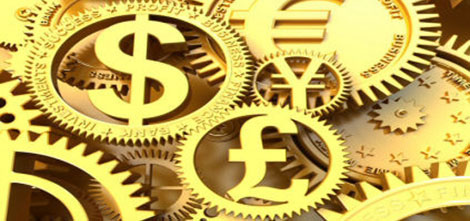Yesterday the story was that the market rallied on belief/hope that the leaders of the Group of 7 economies due to meet on Friday and Saturday of this week would not allow trade tensions to escalate into a full born trade war.
Today it looks like investors and traders are cutting risk ahead of the meeting because there’s every sign that tariff tensions between the United States and its economic allies will get worse before it gets better.
Frankly, I found yesterday’s narrative implausible. The Washington Post ran a well-sourced story (well sourced for this White House, which leaks discussion about policy alternatives like a sieve) that said that the Trump administration was considering hammering Canada, the host of this G7 meeting, with new tariffs in retaliation for Canada’s plan to retaliate for higher steel and aluminum tariffs with higher levies on U.S. imports such as inflatable boats and maple syrup.
Today we don’t have to rely on leaks from administration sources. France and Germany have gone public with their anger at the tariffs proposed by U.S. President Donald Trump. And their threats, if carried out, would mark a big step down the road toward a trade war between these erstwhile allies.
French President Emmanuel Macron has warned that France won’t sign the traditional joint statement of unity at the end of the Group of 7 without major concessions from the U.S., according to a French official in the president’s office. There needs to be progress on tariffs, the Iran nuclear agreement and the Paris climate accord, before France will sign. Macron spent the day meeting with Canadian Prime Minister Justin Trudeau, who has voiced his displeasure in a phone call with the President with U.S. tariffs and his dis-belief that the Trump administration would cite nation security as grounds for imposing tariffs on Canadian steel and aluminum. (To which President Trump reportedly replied, Well, you burned Washington. A little knowledge is a dangerous thing as they say.)
Macron’s position amplifies German Chancellor Angela Merkel’s vow to challenge President Trump on trade and climate change at the G7 meeting. She too noted the possibility that the G7 leaders might not agree on the traditional final statement.



i have to admit, i’m not a macro-economist or anything, but if the economic situation in Europe continues and the value of the dollar increases against the world’s currency, doesn’t that make american export goods more expensive to global buyers and thereby forcing them to seek cheaper alternatives elsewhere in the global market? Does this situation impact any proposed tariffs on import/export volumes. Can you explain this possible conundrum?